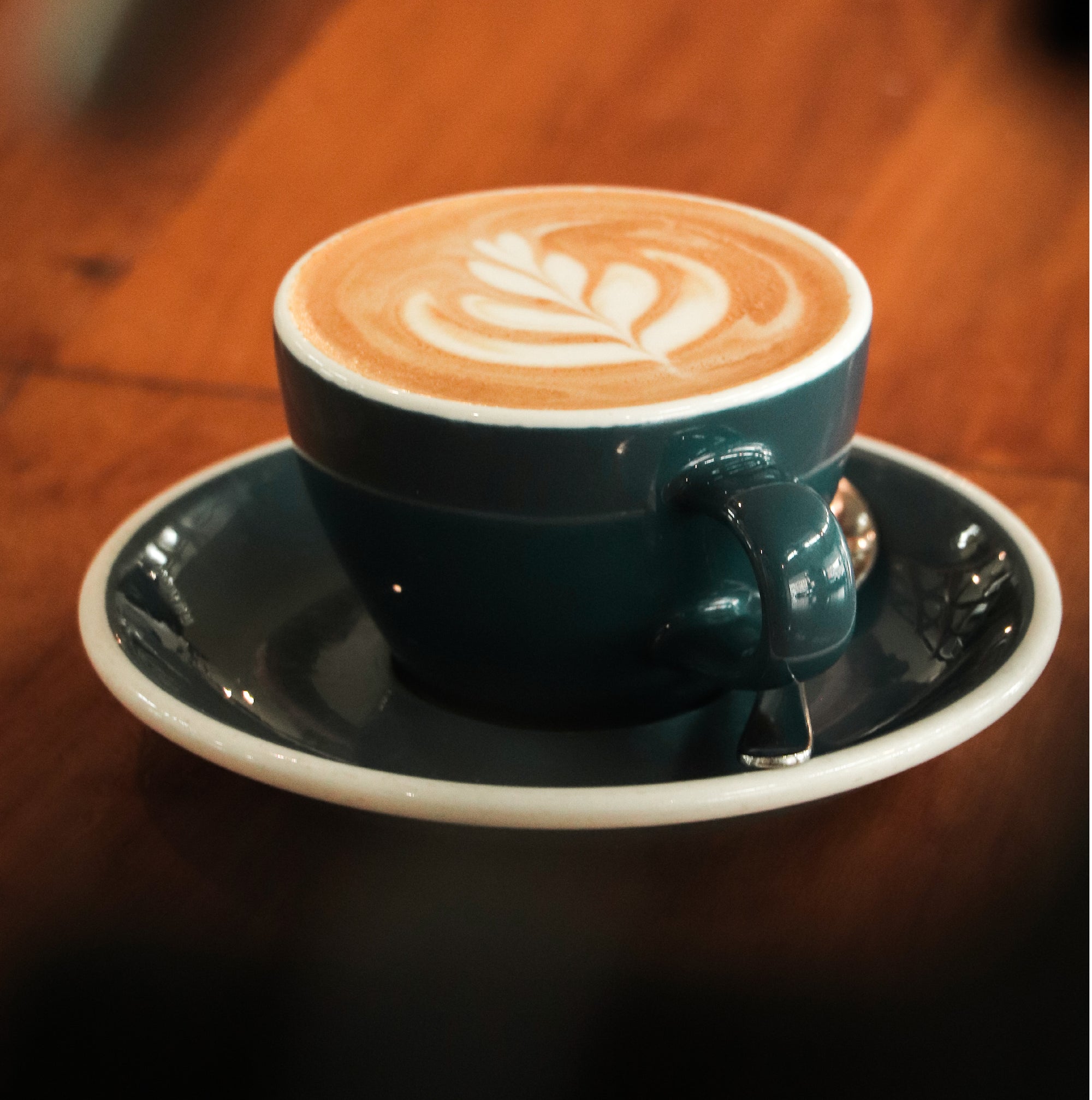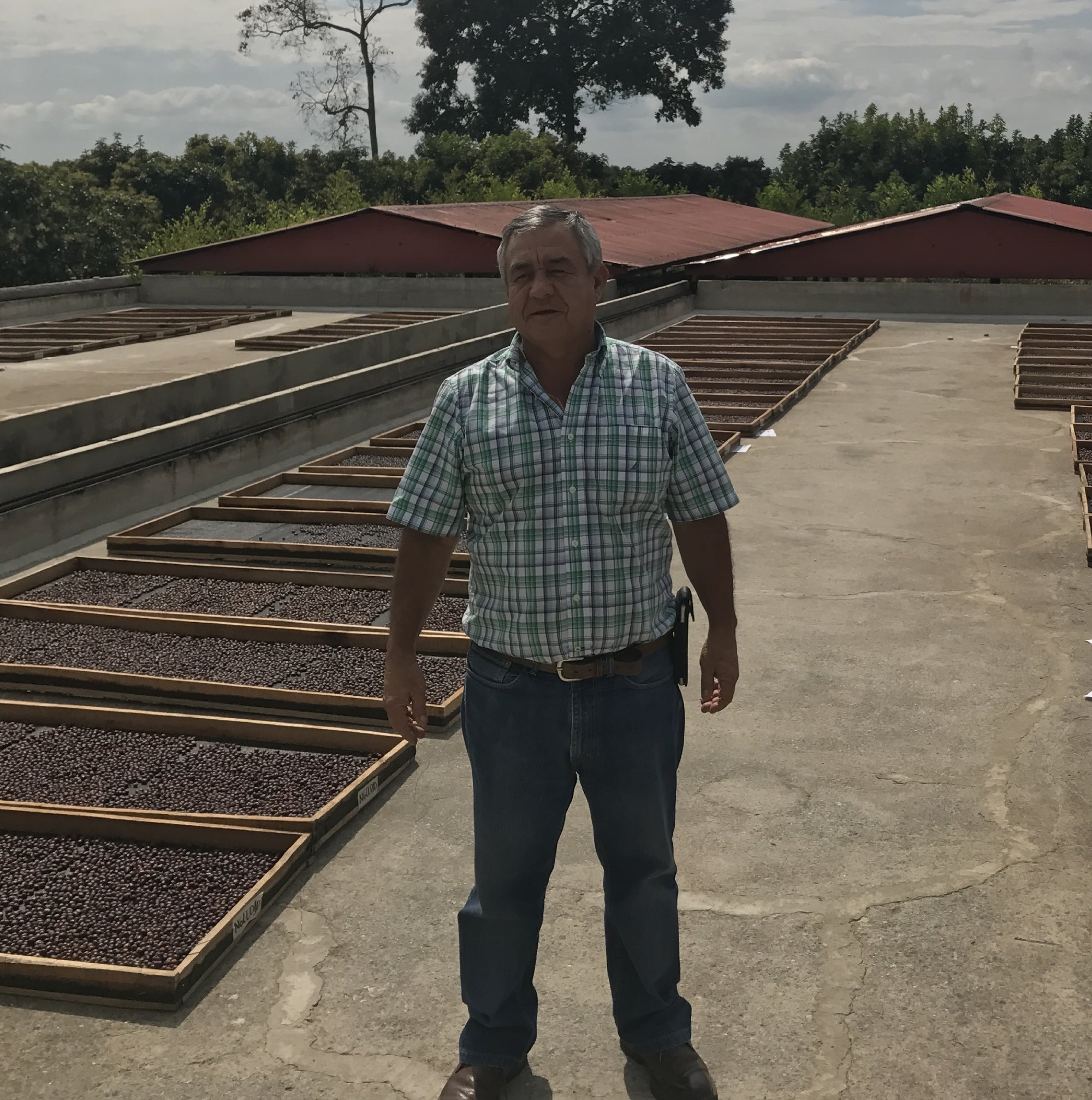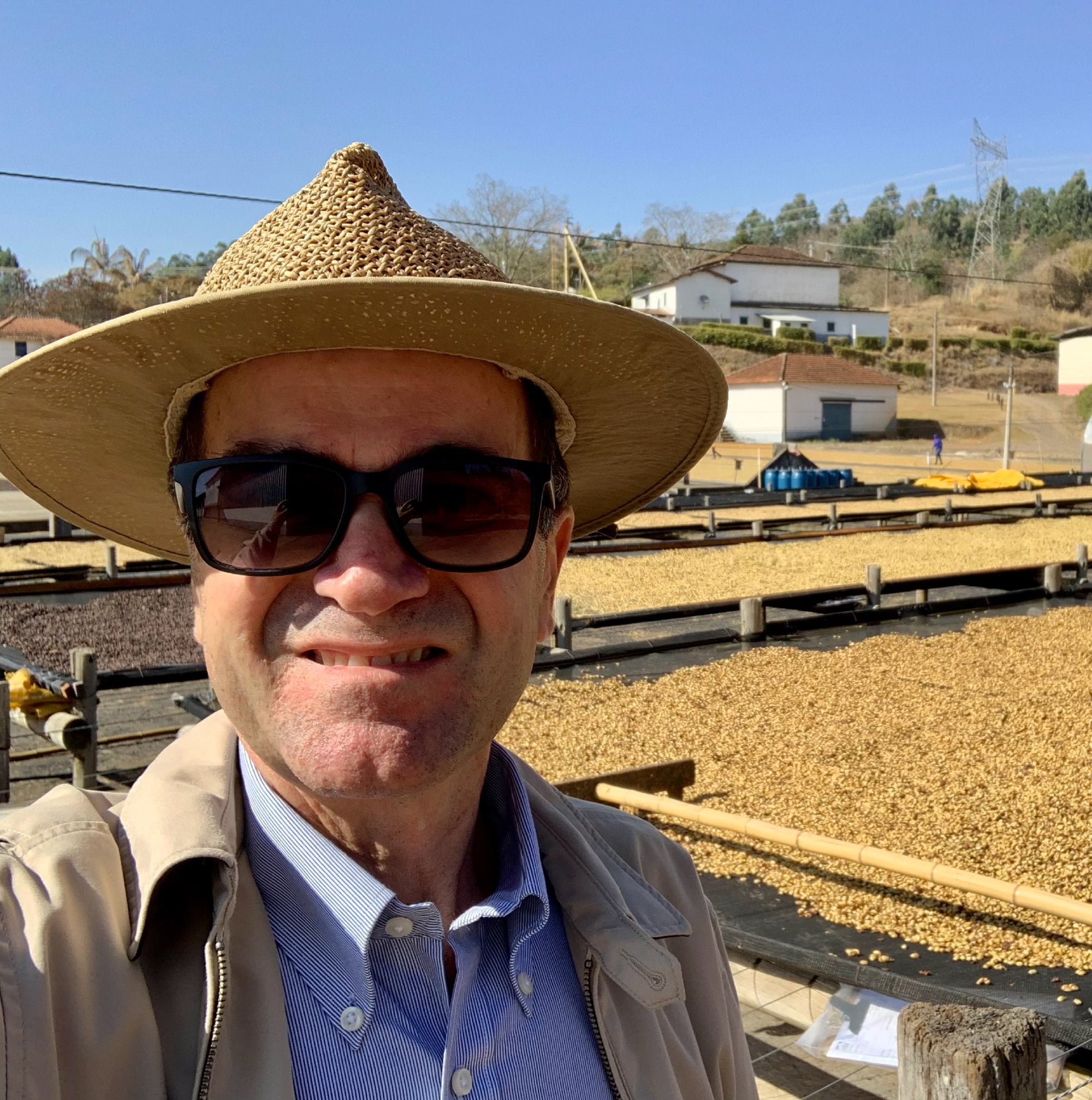




Alpha - Espresso Blend
Alpha is our foundation - the starting point for everything we stand for. Designed to bridge the gap between traditional espresso blends and modern specialty coffee, it’s approachable but layered, familiar but refined. Alpha is how we introduce customers to our approach: quality-focused, balanced, and intentional. It’s built for consistency, clarity, and versatility - a reliable blend that performs across milk and black drinks without sacrificing character.
Vanguard stands for being at the forefront and the Alpha is how we express that in the cup: our lead blend, setting the standard for clarity, balance, and progress in specialty coffee.
Vanguard stands for being at the forefront and the Alpha is how we express that in the cup: our lead blend, setting the standard for clarity, balance, and progress in specialty coffee.
PRODUCERS - Jairo Arcila, Gabriel De Carvalho, El Indio
ORIGINS - Colombia and Brazil
VARIETALS - Mixed
PROCESSING METHOD - Washed, Natural and Fermented Natural
TASTING NOTES - Orange, Strawberry, Toffee, Chocolate
ORIGINS - Colombia and Brazil
VARIETALS - Mixed
PROCESSING METHOD - Washed, Natural and Fermented Natural
TASTING NOTES - Orange, Strawberry, Toffee, Chocolate
